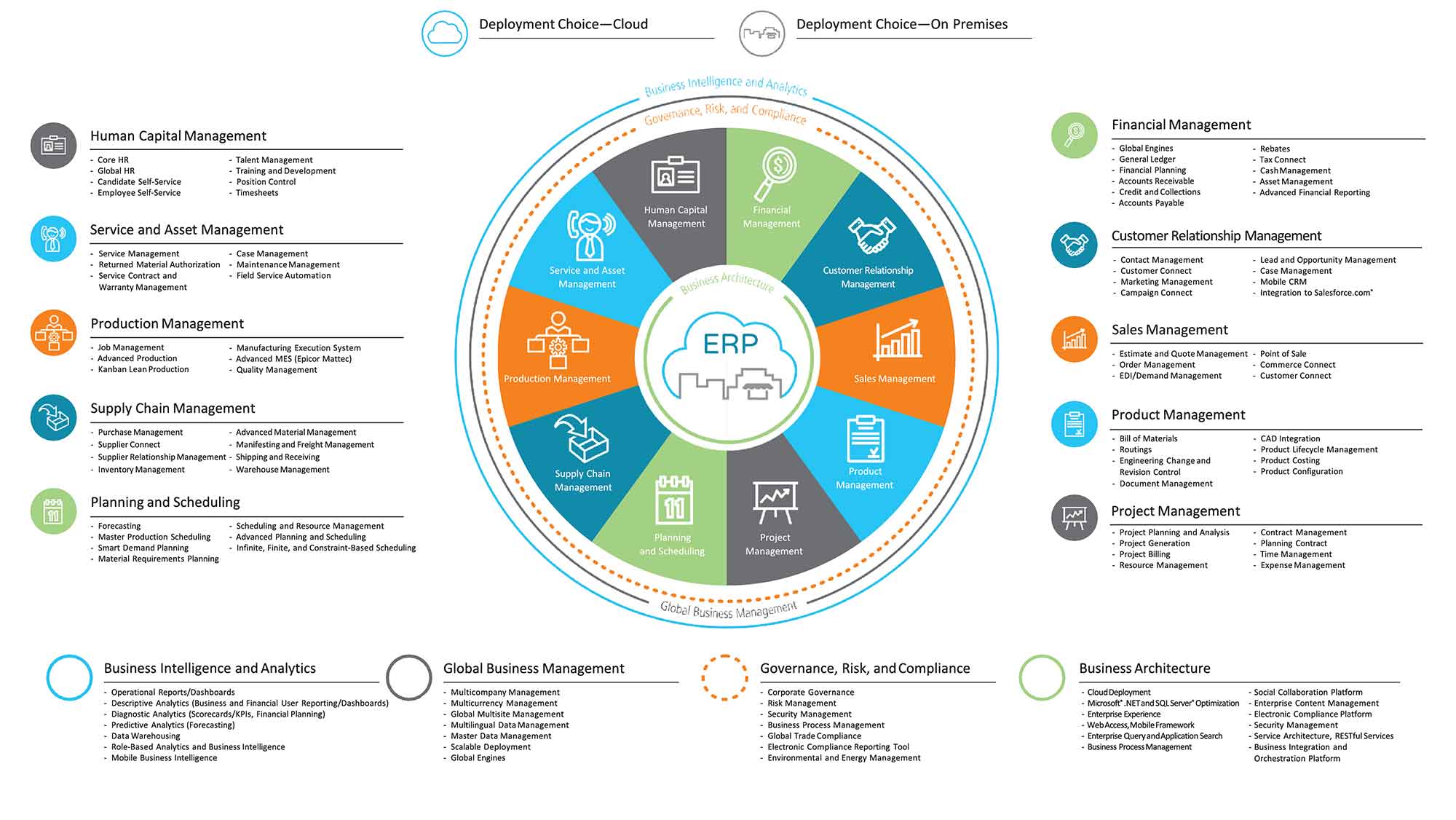How to Select ERP System for your Organization ?


As is the case in most situations, there are always specific, apparent signs that you have not made the correct decision in terms of services hired. There will be missed deadlines, unresponsiveness personnel, and poor performance. Some signs, on the other hand, are not so visible and can include the following:
The Consultant ERP makes more excuses than progress
The ERP consultant does not ask enough questions
The ERP consultant downplays the value of employees
The ERP consultant tries to force products/software on to you
The ERP consultant works to apply one-size-fits-all strategies, no matter how unique the situation.
Proper ERP development and consulting resources are limited. Therefore, you should beware of an ERP consultant that sells you the implementation project with their A-team, but refuses or avoids committing the same team for the duration of the project.
This is a universal example of window dressing, which is a clear red flag in a decision so crucial to the proper functioning of your business.
Similarly, timelines are a crucial factor for judging the adequacy of an ERP consultant. The schedule proposed should be reasonable because unrealistic deadlines will result in the ERP consultants rushing to design the solution without first fully understanding your business and its needs.
Any missed requirements will result in considerable delays and subsequent expenses later on in the lifetime of the project. As a general rule of thumb, beware the ERP consultant that always says yes.
Enterprise Resource Planning (ERP) consultants are experts in two things: a specific course of business such as finance, manufacturing etc. and use of the ERP itself. Therefore, the core role of an ERP consultant is the selection, implementation, training and support of an ERP solution that fits your organization not only according to the core business but also according to the management style.
The consultant’s responsibility is to give you precise, concise advice as to which software to choose, which modules to select within the software, and how to make the best use of your purchase. In other words, the objective of an ERP solution consultant is to make sure you make the right decision in the first place rather than suffer from ‘buyer’s remorse’ later down the line.
At the end of the day, it all comes down to your requirements for a management system. Are you need limited in scope, or do you want to be as ambitious as going for the complete transformation of your business processes? You will need an ERP solution consultant that can match your needs best.
In this case, the ERP finance consultant will still play the role of an ERP consultant but will focus on the finance and accounting modules.
The consultant will be an expert in the field of finance and accounting, thereby allowing a more comprehensive assessment of issues and hiccups faced in the implementing of finance and accounting modules. This is especially important for companies that heavily rely on automated financial and accounting transactions.
An ERP functional consultant helps you to identify the existing business process that needs to be addressed through the ERP and whether they need to be changed or improved in any way.
The functional consultant will use the information you provide along with his own industry and specialization to judge the best solution for you. Of course, it is not always possible for the software to effectively and accurately solve your problems straight out of the box.
Business management is a complex endeavor with many factors changing the course of a decision. It is an ERP functional consultant’s job to make sure as many factors are addressed pre-emptively as possible.
An ERP implementation consultant is responsible for providing a consultative approach to the successful and timely implementation of the ERP software at the clients’ site.
The consultant’s core responsibility, in this case, is to make sure the integration/implementation process goes smoothly from start to finish. Regardless of whether you were responsible for need identification and capacity assessment, the ERP implementation consultant’s goal is to ensure all the factors identified are considered during implementation.
The consultant will also have to take precautions against other pitfalls that may occur during execution.
An ERP software consultant is responsible for the maintenance and customization of the software itself to meet the customer’s needs.
This differs from the technical consultant’s job in the sense that the professional consultant focuses on troubleshooting and the ERP software consultant focuses on adapting the software itself to solve the problem. As we mentioned earlier, you may not require an end-to-end solution from whatever consultancy firm you have selected.
Maybe you already have the software you need but need to make changes to improve the performance according to the unique factors existing within your company.
As discussed earlier, an ERP Technical Professional provides technical support, performs troubleshooting functions and resolves customer issues.
The consultant is not only an expert in the ERP being used but will also have a good understanding of your industry and the unique requirements that go with it. To that end, the consultant will make sure to investigate the condition of your before making recommendations thoroughly.
Ultra Consultants provides a 7-part checklist for teams looking to find the best ERP consultants for their project below:
Experience: Does the firm’s consulting team know the industry? Will the consultants assigned to the project offer skill-sets specific to manufacturing, distribution?
Project Deliverables: Are the project deliverables specified (with examples)? Do the deliverables make sense and add value to the business and project?
Scope of Work: Will the consulting partner work with the organization side-by-side, at each phase of the project, to ensure the project is successful or will the organization be left holding the bag with a laundry list of tasks to do with limited busy resources?
Independence: Is the firm truly “vendor agnostic” with no relationships to software vendors?
Services: Does the consulting firm offer services through each phase of a project? (evaluation, selection, implementation)? Does the firm offer a thorough description of the services to be delivered? How long, on average, is the tenure of the consultants assigned to the project?
Reputation: What does the firm’s past clients say about their experience? Does the consulting firm regularly contribute to industry thought leadership?
Value: How is project success measured? Is it only on-time, on-budget? Or is there more depth and maturity in the metrics – e.g. is the project business case ROI being met? Does the ERP consulting firm put into place proven methodologies to assess ROI?
